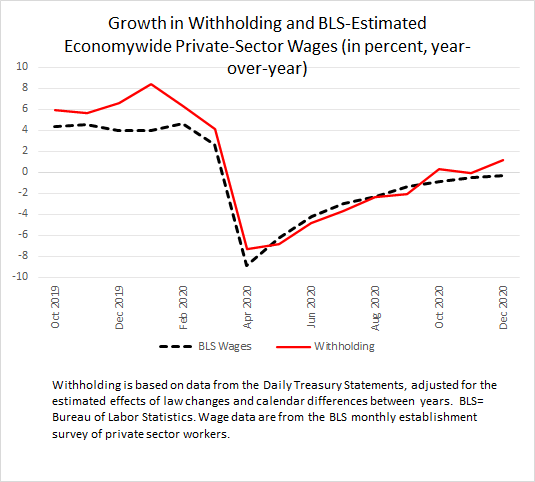Posted on January 12, 2021
According to the monthly establishment survey of the Bureau of Labor Statistics (BLS), with the data for December released on Friday of last week, the economy lost jobs in December but total wage income still improved– just slightly. Total wage income rose because average hourly earnings increased for those working more than overall employment fell. Compared to December 2019, private-sector economywide wages were down by 0.3 percent, a slight improvement from being down by 0.5 percent in November compared to year-ago amounts (see chart below). Total income and payroll tax withholding, on the other hand, which generally moves with economywide wages, improved by much more, from being down by 0.1 percent in November to being higher by 1.2 percent in December, both compared to the same months in 2019.

Withholding has broadly been tracking the recovery in BLS-measured wage income since the worst of the downturn in April, but the difference in their movements in December could be due to several factors. Withholding in December could have been increased by temporary factors, such as year-end bonuses (which are left out of the BLS measure), shifting of wages from 2021 into December in anticipation of tax rate increases (which are unlikely to be captured by the BLS measure that is measured mid-month), or the payment of payroll taxes that were allowed to be deferred by the CARES Act enacted back in March (which wouldn’t affect wages). See our post from last week for a discussion of those factors. Alternatively, there is nothing saying that the BLS measure of wages in December is the final and correct word. They get revised several times as more information becomes available. Also, continuing unemployment insurance claims declined through mid-December, which runs counter to the establishment survey measure of falling employment.